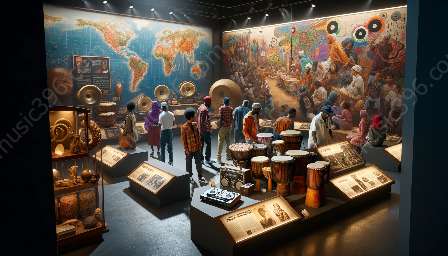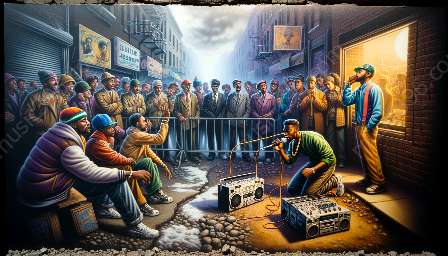Urban music, particularly hip-hop, has significantly impacted societies and economies across the world. This article will delve into the profound social and economic implications of urban music, exploring its historical context and contemporary influence.
History of Urban & Hip-Hop Music
Urban music, including hip-hop, has its roots in the African American and Latino communities of the 1970s. It emerged as an artistic expression of the struggles and experiences of inner-city youth, often reflecting social and economic disparities. Over the decades, hip-hop has evolved into a global cultural phenomenon, influencing various aspects of modern society.
Social Implications
Urban music, especially hip-hop, has served as a vehicle for social commentary, advocacy, and mobilization. It has provided a platform for marginalized communities to articulate their experiences, challenges, and aspirations. Hip-hop music often addresses social issues such as racism, inequality, and systemic injustices, raising consciousness and stimulating dialogue on these critical topics.
In addition, urban music has played a pivotal role in shaping cultural identities and movements. From fashion and language to visual arts and dance, hip-hop has permeated various aspects of popular culture, fostering a sense of community and belonging among its followers. Moreover, the genre has been instrumental in empowering individuals to express themselves creatively and assert their cultural heritage.
Economic Implications
The economic impact of urban music, particularly hip-hop, cannot be overstated. The genre has generated substantial revenue streams through music sales, live performances, merchandise, and endorsements. Moreover, the rise of hip-hop has catalyzed the growth of ancillary industries, including fashion, media, and entertainment, creating employment opportunities and contributing to economic development.
Furthermore, urban music has influenced consumer preferences and marketing trends, shaping the global market for fashion, luxury goods, and lifestyle products. Brands often collaborate with hip-hop artists and influencers to connect with younger audiences and tap into urban culture, thereby driving sales and brand loyalty.
Impact on Society and the Economy
Urban music, particularly hip-hop, has left an indelible imprint on both society and the economy. It has provided a voice for marginalized communities, fostered cultural pride, and inspired social movements. Simultaneously, the genre has stimulated economic growth, transformed industries, and propelled the careers of countless artists, entrepreneurs, and professionals.
Conclusion
In conclusion, the implications of urban music, especially hip-hop, extend far beyond the realm of entertainment. Its influence on society and the economy is profound, challenging societal norms, amplifying marginalized voices, and driving economic prosperity. Understanding and appreciating the social and economic dimensions of urban music is crucial for comprehending its impact on contemporary culture and global commerce.




























